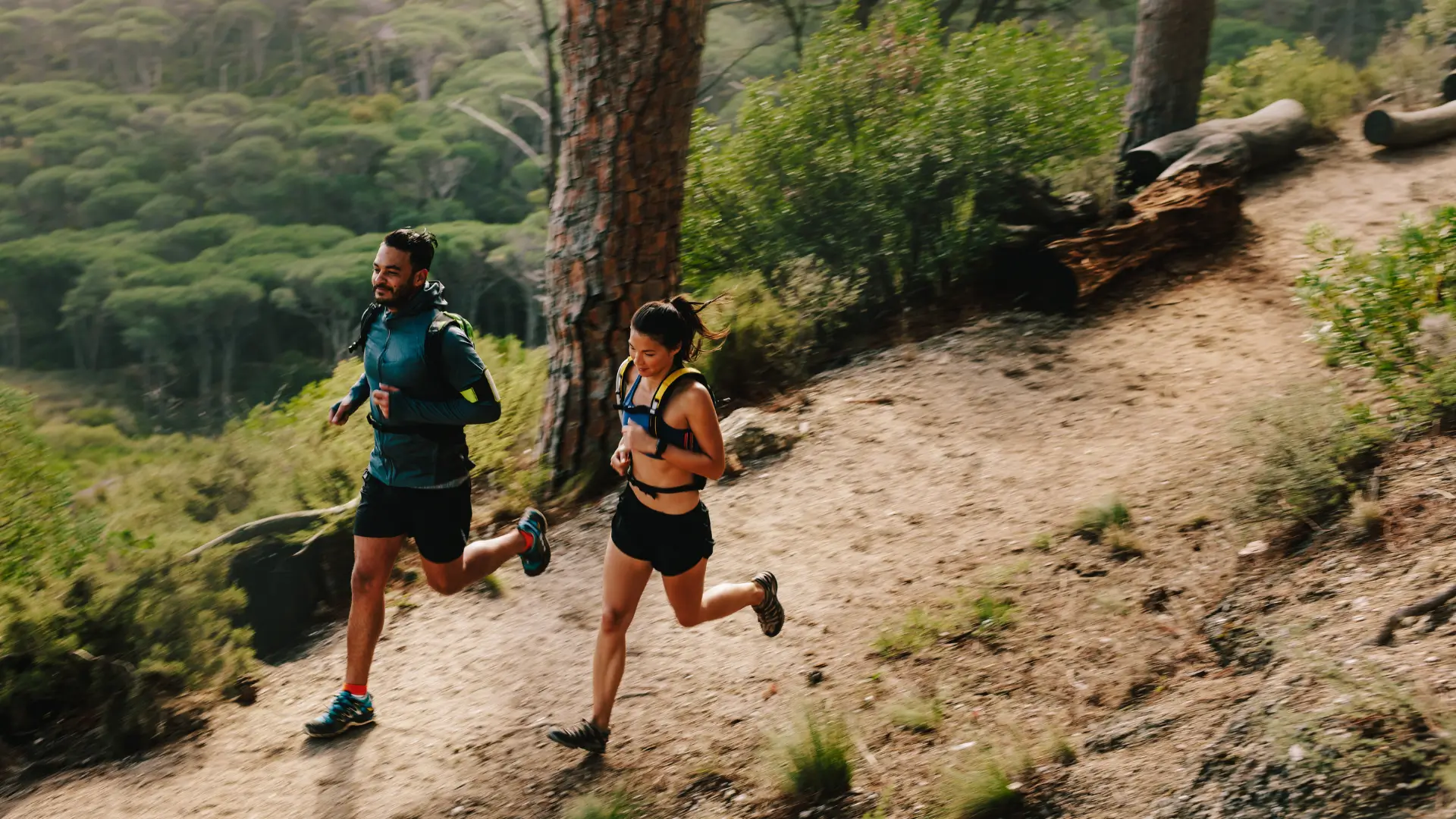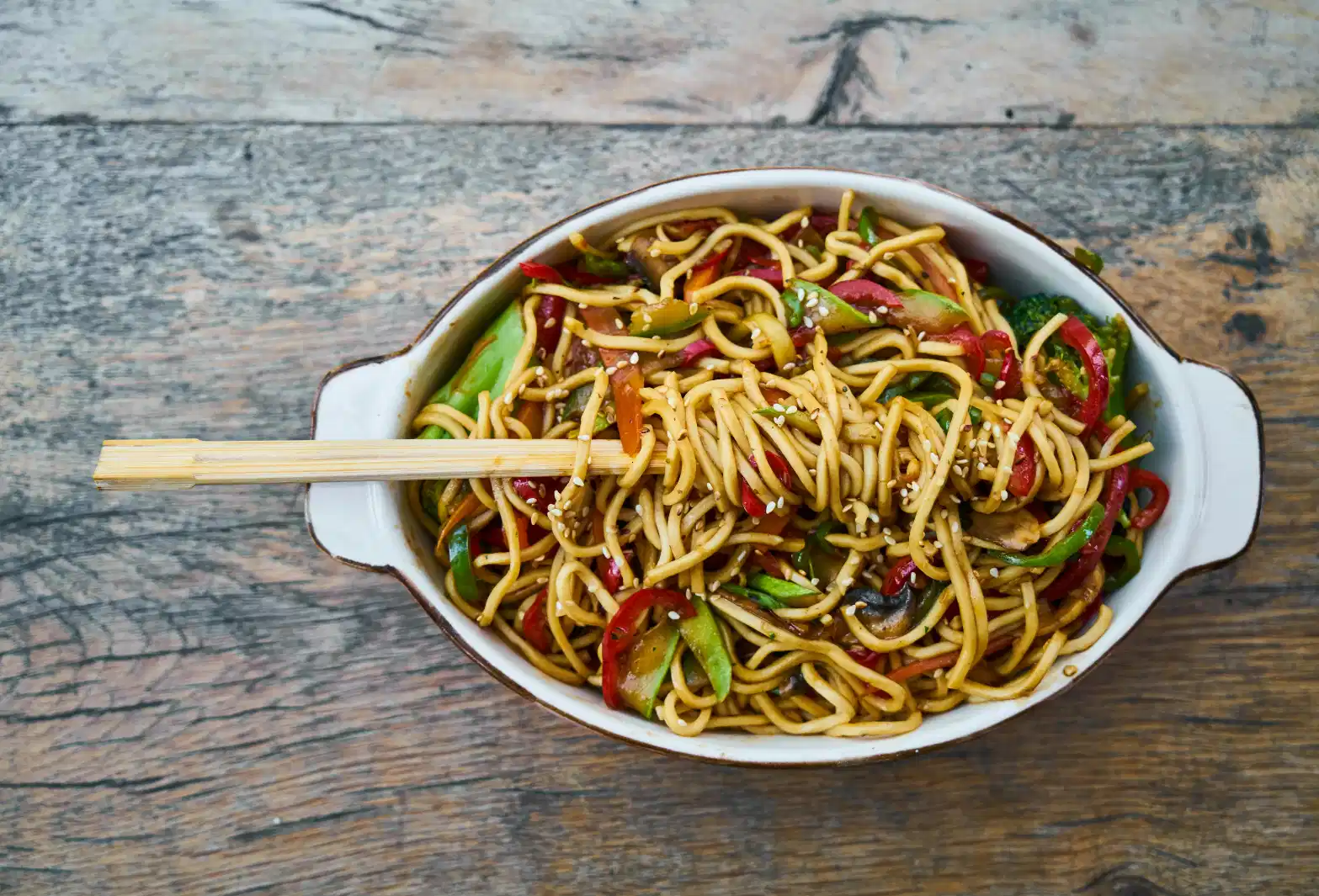If we had to sum up the role of carbohydrates in athletic performance in one sentence, it would be: no carbohydrates, no performance.
Even when cutting or bulking, even with short or long training sessions, even when consuming protein at every meal... If carbohydrate intake is poorly managed, the body tires and performance suffers.
This macronutrient is the main source of energy for muscles and the brain. It provides glycogen reserves to ward off fatigue during exercise and aids recovery. Whatever the sport: indoor, endurance, or high-intensity weight training, energy requirements increase during exercise, and carbohydrates are there to meet them. But not just any carbohydrates: the choice of foods, the amount of glucose, and the type of sugar (simple or complex) all come into play.
Glycemic index, form, role—here we explain how and when to consume carbohydrates to improve your overall health, physical and mental performance, and promote muscle recovery.
Everything you need to know about carbohydrate consumption
What is a carbohydrate?
In the dictionary, a carbohydrate is defined as a nutrient composed of carbon, hydrogen and oxygen. That's why carbohydrates are also called carbohydrates, but what are they?
These macronutrients are sugar molecules that exist in two forms in the diet:
- simple carbohydrates, in which case they are referred to as monosaccharides or high Glycemic Index (GI) sugars, formerly known as "fast" sugars;
- complex carbohydrates, in which case we speak of disaccharides, polysaccharides or low-GI sugars, formerly known as "slow" sugars.
These contain starch and fiber. They include bread, wheat, quinoa, brown rice, oats and all cereals and legumes.
When we talk about slow or fast sugars, we have nothing to do with absorption speed, which is the same for all carbohydrates. It's the metabolic availability of sugar (and not intestinal absorption) that's at stake. That's why this term tends to be used less and less.
How are they used by the body?
Carbohydrates are digested by the body, which breaks them down into glucose. Some is stored as glycogen in muscle tissue and liver cells. During aerobic or anaerobic physical activity, glycogen provides energy¹.
High-GI carbohydrates quickly satisfy the body's urgent needs. The most obvious example of this is when you're feeling tired, which you can counter by adding fast sugars to reduce the feeling of fatigue and re-energize the body.
Low-GI carbohydrates replenish glycogen reserves for longer efforts.
The type of physical effort is also an important criterion to take into account when choosing carbohydrates. If it's short and intense, the body will produce energy thanks to phosphocreatine and glucose. As it lengthens, the heart and lungs bring more oxygen to the muscles, which in turn consumes glycogen and lipids.
Whether the effort is endurance or strength training, carbohydrates play a key role in energy production.

The role of carbohydrates in sports performance
Before exercise: build up reserves
Before a long effort, such as endurance training, we prefer complex carbohydrates (pasta, brown rice, legumes) to build up glycogen reserves, which the body can then convert into glucose when it needs it.
In nutrition, we even talk about carbohydrate overcompensation on the plate as an essential dietary adaptation for athletes in their quest for performance.
Beware of exhaustion, the famous "wall" where the athlete is forced to stop, precisely because the body no longer has glycogen reserves.
During exercise: fueling up
Drinks, dried fruit and other quick sugars are useful during exercise, as they provide glucose quickly, helping to revitalize the body.
Carbohydrate-rich drinksoptimize glycogen reserves. They are a good complement to complex carbohydrates for sports lasting over 1 hour, such as cycling or triathlon. They are consumed regularly throughout the effort. Two types of drink are available:
- hypotonic and isotonic, rich in carbohydrates and electrolytes, whose elements are rapidly assimilated;
- hypertonics , which are richer in sugars and can cause cramps or heartburn.
After exercise: optimal recovery
Recovery is very important for anyone who practices sport for performance purposes. As soon as you exercise, your metabolic system changes and transformations occur: increased oxidative stress, sweat, calorie and protein losses, lower glycogen levels, etc.²
The body needs to compensate for all these losses and replenish its glycogen reserves through carbohydrates. Carbohydrates, coupled with proteins, also help rehydration through post-exercise drinks, which ideally also contain carbohydrates. For example, maltodextrin or whole cane sugar (a natural source of glucose+frcutose) work very well with Whey for a high-intensity carbohydrate + protein combo.
During exercise, hypotonic or isotonic drinks rehydrate and replenish and replenish minerals. One hour after exercise, bananas or dried fruit can be reintroduced into the diet.
In the days following a sporting event, glycogen energy reserves can be replenished by eating starchy foods or fruit.
Carbohydrates, an asset for mental performance
The link between brain and glucose
The brain needs a ration of glucose to maintain synaptic activity. Whether we're in the midst of reflective activity or at rest, 20% of the glucose we absorb will be used to keep the brain running smoothly.
More specifically, cognitive processes such as attention require rapid availability of energy. Sports with a cognitive component, such as shooting, tennis, table tennis or team sports, therefore require sufficient glucose.
Moreover, ingesting carbohydrate drinks tends to improve cognitive performance throughout exercise, particularly during difficult cognitive tasks⁴.
The impact of hypoglycemia on performance
When you fall into hypoglycemia, the sugar level in your blood is insufficient. The result is physical and mental fatigue, accompanied by a drop in performance.
A loss of attention and lucidity can lead to technical errors and even injury. To compensate for this, or to optimize cognitive faculties at the end of an effort, taking fast carbohydrates can be a good strategy.
Adapting your carbohydrate intake: our advice
Increasing needs according to sport and intensity
The right diet and breakdown of carbohydrates, lipids and proteins depend on a person's calorie requirements, theobjective of their sports program, their morphological profile , and the type and intensity ofexercise.
For example, for the general population, the recommended carbohydrate intake is 5 to 6 grams / kg body weight / day, but for a bodybuilder, this can be reduced to 3 grams of carbohydrates for dry training. On the other hand, in endurance sports, recommendations can go up to 10 grams of carbohydrates per kg / day for a person who trains for more than four hours a day.
Clearly, it's important to personalize your carbohydrate intake, depending on your needs and the type of exercise you're doing.
Caloric and macronutrient requirements calculator
Recommended macronutrient breakdown (approx.)
Choosing the right foods and supplements
Foods are classified according to their carbohydrate index (GI). This index gives an idea of the food's capacity to raise blood sugar levels, known as glycemia. The higher the GI, the faster the increase in carbohydrate load.
We often hear that high-GI foods are unhealthy. While it's true that they do increase the risk of obesity, type 2 diabetes and other metabolic disorders in the context of a sedentary lifestyle, they do have their uses for athletes who need sugar, particularly to kick-start effort in the event of fatigue or for very high-intensity post-exercise moments.
For optimal carbohydrate intake, however, it's advisable to turn to low or medium GI foods on a daily basis, such as wholemeal wheat, sweet potatoes or legumes.
Glycemic indexes vary according to cooking and/or food combinations.
For example:
- al dente pasta has a lower index than overcooked pasta;
- combined with Whey, carbohydrates lower their GI.
4 pitfalls to avoid
The first trap to avoid is cutting out carbohydrates under the pretext of losing fat. Too few carbohydrates when you're drying out can lead to muscle wasting.
Another common mistake is to confuse complex carbohydrates with fast sugars. We often hear that sweet potatoes are sweet, but their GI is medium, so they're not considered fast sugars.
The timing of carbohydrate consumption is also important. Eating too late complicates digestion, which is then incomplete at the time of activity. Conversely, eating too early can deplete reserves too quickly.
Finally, neglecting recovery and carbohydrate intake during this phase exposes the body to fatigue, and ultimately to a drop in performance.
Conclusion
A balanced diet rich in low- to medium-glycemic carbohydrates is the key to adequate carbohydrate intake for performance.
It stabilizes blood sugar levels, optimizes digestion and supports muscle mass during long-term effort. Conversely, a low-carb diet, or inadequate intake before intense exercise, can impair glycogen resynthesis, and even lead to hypoglycemia and fatigue.
Energy bars and sports drinks meet the immediate need for energy during prolonged exercise. Complex carbohydrates, on the other hand, play their part over the long term and are indispensable.
Consuming carbohydrates properly, within a set timeframe and through balanced meals, means optimizing digestion, limiting fatty acid oxidation and delaying fatigue. This is the key to sports performance, thanks to the right nutrition.
Sources
To find out more :
Proteins and sports performance
Carbohydrates for mass gain
Carb rebound













